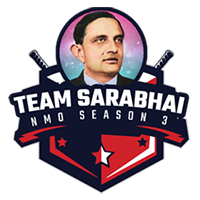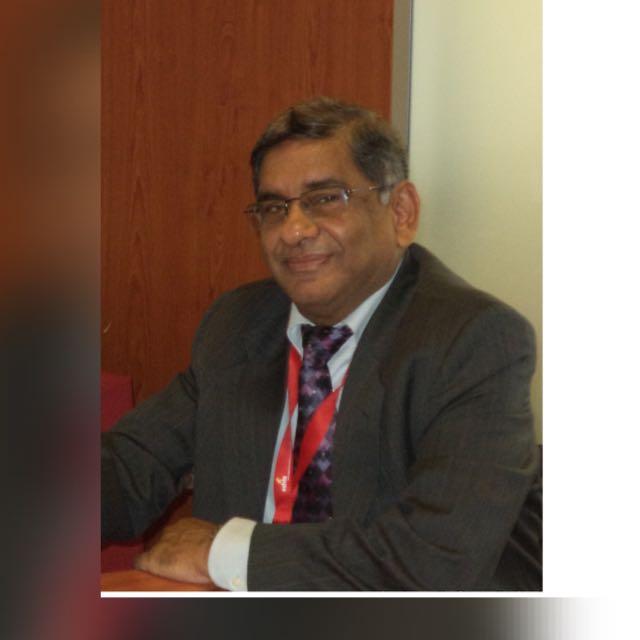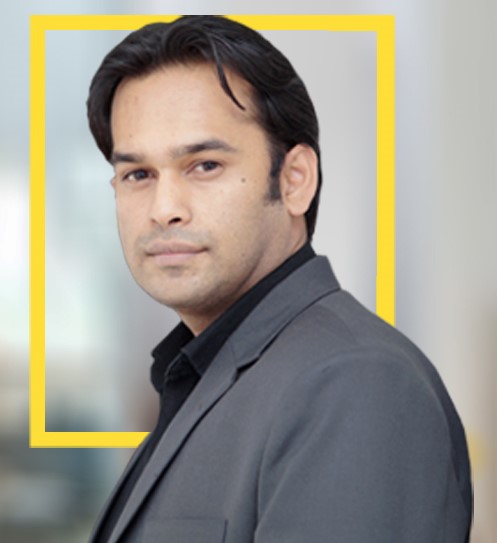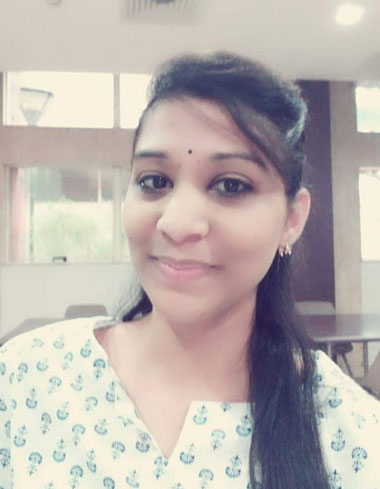
FINAL | BUSINESS CASE - BCS 09
Submission BCS 09
NMO Season 3
Marketing proposal for “Waste to Wealth†scheme for implementation of an Integrated Solid Waste Management System in Bhopal city.
Submission Date & Time : 2021-04-03 07:02:38
Submitted By : ISHITA BERA - From Team Sarabhai
The Environment: Understanding Bhopal’s Solid Waste Management Problem:
From the above mentioned BCS we can straightaway recognize the bottlenecks in the current waste management system and propose a solution which would be in line with government’s expectations from the proposal.
1st Bottleneck: Current waste management practices have become redundant and inefficient. The new focus that we see resonating everywhere in our government’s initiative is a Solid Waste Management Policy which targets achievement of 100% segregation at source for solid waste. Please refer to the marketing proposal report (attached) in which “Hierarchy of Waste” is explained and demonstrated. We can clearly see that the most preferred initiative in order of importance for Indian Government Swachh Bharat Mission initiative is given to “Source Segregation & 3R Principal – Reduce Reuse Recycle”.
Way- out & our Focus: Our proposal resonates a major initiative and drive to achieve this through an innovative App that goes by the name of “Cleaning Angels”. This app will become the platform which can bring about a paradigm shift in the mentality of people at large and they start comprehending that “domestic waste” is in real terms “wealth” in disguise. We build an army of door-to-door collectors who go by the name of “Cleaning Angels”. We build the awareness for segregation starting from the source down to the entire value chain of waste management. We promote dignity in waste collection by redefining our army of people engaged in the waste collection system with a tag of “Angels”. Our company mission and vision for woman empowerment is also reflected in our initiatives going further.
2nd Bottleneck: Current waste management practices has become financially unviable. The viability of any system depends on the return on investment (ROI) in the long run. Solid waste management system without proper segregation methodologies loses its value in the circular economy. Instead of generating an opportunity for being categorised as recyclable materials which supports a “sustainable environment”, a large portion goes into the landfill. However, the non-recyclable waste collected can be reused as alternate source of energy as in waste to energy or W2e plants. However, with the disproportionate increasing projection of growing volume of waste and population that generates it - makes the landfill management or waste to energy proposals stand as a lesser preferred option in the “Hierarchy of waste”. Albeit from Bhopal city point of view where there is a shortage of power resources, W2e is definitely a preferred and financially viable option as proposed in our solution as well.
Way- out & our Focus: The question that arises here is about the focus area in our proposed solution for making the waste management system viable. We have used the latest available technology starting from the step 1 to 4 in the well-defined integrated solid waste management process chain.
Step 1 >> Door to door collection
Step 2 >> Transportation of collected waste
Step 3 >> Disposal of collected waste
Step 4 >> Recycling of collected waste
The advanced monitoring and data analysis of the waste management through connected devices using IOT at every step makes this system easy to be replicated and integrated with the nearby ULBs – which is one of the visions and requirement of government in launching the “waste to wealth scheme”.
The Company: Eco-Gold Ltd., Bhopal: We are a leading provider of comprehensive environment management services. We offer a whole gamut of the environmental services:
Our activities currently revolve around the implementation of a waste management plan that covers the following activities, all typically managed at the point of collection.
Separating, sorting / labelling, profiling, packaging, classifying, inventory, storage, logistics management, valorisation (to enhance or try to enhance the price, value, or status by organized action), recycle, reuse, reporting and traceability, waste to energy and facilities management.
Company Mission & Vision:
Vision: Eco–Gold Ltd. shall become a leading enterprise with world class infrastructure development and environment management. Our vision is to be the world's most dynamic company in creating sustainable solutions that are essential to a better, safer, healthier life for people everywhere. We have a focus on woman empowerment and inclusion of informal groups.
Mission: To provide society and our clients solutions and tools designed to implement environmental commitments in a safe, efficient and responsible manner.
SWOT Analysis: (Company)
Strength: Eco-Gold Ltd. is about two-decade old company and is a well-established known brand in Industrial waste management. With the exposure and expertise of the existing team they can handle a similar portfolio as is available in the project at hand under “waste to wealth” scheme. The goal of this project in terms of waste management and developing a sustainable environment matches with the vision and mission of the company. The company has focus in women empowerment, and this project supports this socio-economic cause as well, generating employment of hundreds of women in the door-to-door collection team. They have a well experienced team for handling waste collection, sorting and management which can be utilized in this current project as well. The current available financial deposit and credit line taken together of 210 crore rupees gives them the leverage to plan for assets phase wise and facilities along the timeline
Weakness: Although the company is venturing into a similar waste management system, the equations for successful handling of this project demands a completely new approach. Industrial waste management has a source or collection point of waste where organised segregation at source is easy to achieve. Industrial environment calls for natural following of Standard Operating Procedures (SOPs). So, in this case we would need to plan for special initiatives and drive to create this awareness among public of Bhopal.
Opportunities: Eco-Gold Limited has a very good opportunity to venture into a new market which has huge upcoming opportunities under the Swaccha Bharat Mission of Government. The SBM policy is a focus area for government, and with the growing volume of waste in cities due to urbanisation Eco-Gold would have plenty of opportunities in coming years if they succeed to bag this project and execute it as per proposal. This is an opportunity for Eco-Gold to achieve the company vision of becoming a leading enterprise in environment management services.
Threats: The company is building up an integrated software platform and ultra-modern sorting centres based on the current government policy and focus on Swaccha Bharat Mission. However, with the change in political environment and hence ruling party may lead to major changes in focus and priorities of government. Projects related to waste management of cities are usually long-term plans and investment are also aligned in this manner. A sudden change or revision of the policy may threaten the project or force Eco-Gold to bear unwanted financial burdens in future.
However, this seems to be highly unlikely in this case, as the “Hierarchy of waste” and policies are in line with the global trend for waste management system which goes in favour of public welfare at large.
Marketing Strategy & Implementation proposal:
Our target here today is to explain how and why our marketing proposal is an integrated, efficient, cost effective and environmentally compatible sustainable solution all through the value chain of solid waste management system.
India faces major environmental challenges associated with waste generation and inadequate waste collection, transport, treatment and disposal. Current systems in India cannot cope with the volumes of waste generated by an increasing urban population, and this impacts on the environment and public health and the city of Bhopal in question is no different.
A priority today is to move from complete reliance on segregation at secondary collection points or sorting centres towards an additional focus on developing a change in mindset and target for 100% waste segregation and collection at primary source as well – the households.
Conceptual paradigm shift of ‘waste’ as ‘wealth’: This conceptual paradigm shift of building an image in mind of common people to consider ‘waste’ as ‘wealth’ is the key idea behind our marketing proposal.
Here we would like to bring to notice a unique approach called “hierarchy of effects” which is often used in marketing of products. HoE is a simple and straightforward easy to understand template in marketing. It’s a six-step process that is very often implemented to create awareness among people in general.
Awareness >> Knowledge >> Liking >> Preference >> Conviction >> Purchase
We may wonder that why are we discussing marketing principles in handling of waste?
We realised that as soon as we start building up a financially viable business model the first thought process is to understand the supply- demand graph of the product in question.
In case of waste management ironically the realised value of product at source is close to “nil”. However, the valorisation of the product down the line is solely dependent on the SOP of how well “segregation at source” is being followed – so that recyclable and valuable waste (eg. uncooked but discarded vegetable cut parts or peels) would not end up in landfills.
Every household is happy to get rid of their domestic waste, and probably never realise fully the aspect of wealth factor associated with it. Simply put, waste is an obligation for the household and they don’t get anything in return out of the disposed garbage. Rather in many housing complex people have “private garbage collection fleet” who collects the waste from door to door and people are ready to pay a monthly fee as decided by the housing society.
However, if we think carefully there always existed an unorganised sector of “Kabadiwalas” who made a business model out of this waste management system. They had been tapped in by the B2B companies who saw a niche market and demand for recyclable raw materials. Soon a business chain was formed, but in an unorganised manner for collection of the recyclable materials (like newspaper, bottles etc.) from home.
Kabadiwalas made residents realise that there is a potential wealth factor associated with the solid wastes like old newspapers, old glass bottles, shampoo bottles and so on. People started to automatically take initiatives and segregate them or stow them away to be sold at a fixed value per kg to these Kabadiwalas. Hence, many of these segregated wastes failed to land up into the Municipal Garbage Dumpsters which has a good demand in terms of recyclability.
So, we realised there is a potential for creating this awareness and knowledge of being a responsible citizen as a part of Swacch Bharat Abhiyan but segregation of waste needed more motivation. The SBM initiatives at every level starting from school to social platform helped people to realize that one should not throw garbage openly on road, but there was nothing innovative done for further “Conviction” of segregation of waste during the collection of solid waste at source. The awareness campaign alone was not enough to motivate people for 100% segregation at source.
We realised the gap in “Hierarchy of Effects” marketing model and understood that for motivating the citizens so that they would take initiative and segregate the waste into different categories there was something lacking.
Firstly, we realised after survey of news and articles on the internet that somehow in spite of lot of awareness campaigns in all social media and initiatives from government – the diverse demography, population density, topography etc. of each state varied to a large extent. Hence this was a difficult task for government to declare a “one-fit-all” solution to achieve the vision of 100% waste collection and segregation at source from the government of India.
So, after accessing the Smart City Profiling published online by Ministry of Urban Development, Government of India we did some profiling of the city in question - Bhopal.
Let’s see the demographic profile of Bhopal in a nutshell:
The indicators that interested us in furthering a strategy for marketing proposal are 83.47% literacy rate and 65.22% of working population among whom 21% were in the category of youth. Furthermore, 67.92% of the population had household access to banking facilities. The numbers indicate a potentially large percentage of people who were working and literate.
In fact, the slum population in Bhopal is 26.68% where the waste management system and strategy differ from Higher Income Group (HIG), Middle Income Group (MIG) or Lower Income Group (LIG) of people.
Further as per the data available for E-governance and Computerization in ULB we found that Citizen Grievance Monitoring, connectivity of ULB offices with each other though LAN was also available.
In short, we understood that here we can propose a phase wise awareness campaign bundled with Incentivising the efforts of segregation of waste. The Incentivised circular economy may very well do the fool proofing of segregation at source eventually in time to come which is worth a shot.
A circular economy is a systemic approach to economic development designed to benefit businesses, society, and the environment. In contrast to the 'take-make-waste' linear model, a circular economy is regenerative by design and aims to gradually decouple growth from the consumption of finite resources.
The large percentage of youths and literacy rate in Bhopal city led us to propose an integrated App based monitored segregated waste collection system at source.
So how would this system work?
Being in line with the vision statement of Eco- Gold Ltd. for woman empowerment we shortlisted “Ahad Education and Social welfare society”.
They are a perfect fit for building up the door-to-door waste collection team.
This NGO has also been awarded by parshad of Lalghati for their contribution of work for Swachh Bharat Abhiyan. Furthermore, their focus area was women empowerment. The awareness campaign for 100% segregation at source needed a team of people who were self-motivated to explain the purpose of this campaign.
Our marketing and HR team went a step further to propose innovative steps like:
>>” Train the trainer”
>> Renaming the Door-to-Door collection team as “Cleaning Angels”
In short there were a joint proposal from the HR and marketing team to give a purpose and mission to this very important starting step in waste collection which actually would help in extracting the maximum value out of collected waste all through the value chain of transportation, recycle and finally disposal of waste. A better segregated waste collection system would ideally lead to the much-needed direction of – lesser number of landfills getting created.
The App – “Cleaning Angels” will help in bringing on board and promoting primarily the products of companies who have focus on sustainable products. There is a scope of other B2B companies or e-marketing giants to be associated with us in later phases of implementation as well. This would help to complete the cycle of connecting the producer of waste to the consumer of recycle waste products as raw materials (3R principals) and hence generating a self – sufficient circular economy.
The incentive or award system:
Three-way segregation compliance: The compliance under 100% segregation will follow the three-way segregation rule in which there will be the following categories:
- Green bin for wet waste
- Blue bin for dry waste
- Red bin for hazardous waste
The incentive through app: Once the app has been downloaded by the individual, next they can choose the available slot and day of disposing the segregated garbage. IT has a big role to play here in making the slot available based on area, load of collection, availability of Cleaning Angels etc. Once assigned our waste collection team of “Cleaning Angels” will arrive within the slot to collect the waste and as per the set standards reward points will be assigned immediately in the disposers account in our app. Customer can redeem these points in form of special discounts on purchase, food coupons, gift cards as available on our app. Since we tap in B2B companies primarily related to sustainable products or other e-marketing items which are in demand in the locality after initial surveys, we would already be connecting the right seller with the right consumer. Customers would be interested in getting benefit out of their disposal instead of paying for getting their garbage collected. Eco-Gold limited would be getting the financial viability by the advertisements of these B2B companies on social media platform – which is part of our digital marketing drives. Additionally, disposal of the virgin waste from time to time (like glass bottles, newspapers etc.) can be done through a special scheme in our app. These are valuable waste for us. In order to compete with Kabadiwalas – we would allow the customer to book slots for disposals and give cash back per Kg. The rate of cash back would be based on a prior calculation of the end cost selling price as raw material, going back into sustainable production.
We have primarily three focus groups of waste producers to discuss:
Group 1: The High, Medium and Lower Income group: The households in this category usually have a society who looks after the waste disposal at source. In a sense every household ends up paying a nominal fee for carrying out daily disposal of waste at source. The garbage collection team is generally outsourced 3rd party who have a contract with the society. They either collect the agreed fee directly from the residents or from the representative of the society.
Our Strategy for this group: We will approach the society for collection of garbage at no cost, provided all the residents are encouraged and advised to use “Cleaning Angels” app for a better handling of 100% - 3-way segregated collection of waste at source.
Group 2: The Shops or establishments or unorganised market place etc: This sector essentially disposes waste which has more value in terms of recyclability. They usually discard their garbage along with the collection team or dispose off at roadside many a times which makes it unviable and uncontrollable for MSW to keep a track and monitoring of proper collection and segregation.
Our Strategy for this group: Usually the shop or market place are under a market complex or some unorganised business welfare society. We will need to survey this pattern and then apply a similar approach for urging them to download our app. Shops and establishment has to give special efforts for disposing their garbage. In case we are able to map the reward points with their suppliers – the shops would be interested in the proposed system as well.
Group 3: The slums and other unorganised shelters: Usually this is a group of people who are unique in the terms of establishments. There is no demand for reward points here, as they do not have the purchase power that can generate the interest for segregation.
Our Strategy for this group: We tie up with NGOs who can handle them and invest in training the NGO team, or building up pre-sorted garbage point of collection at no cost. This step goes toward CSR activities of Eco-Gold, and will also end up in a step of Swacch Bharat Mission of 100% waste collection. This step goes towards brand value creation of Eco _ gold as well. The percentage of slum dwellers add up to 26% of the population and needs to be included in our drive to achieve the target we have set upon. People can be rewarded for correct discarding of materials in form of “Survival Kits” – which may include essential items of need like pulses, rice etc. which would interest the slum dwellers to do the needful.
Phase wise awareness campaign: The task at hand cannot be implemented quickly as it has many stakeholders involved, So the proposed pan at all levels has been segregated into four phase – extending up to a 5 years plan.
First Phase >> 1.5 years’ timeline: During phase 1 of implementation marketing team would be running awareness campaigns encouraging people to realise the reward points and the conceptualisation of “wealth to waste”. We start with a door-to-door garbage collection team of 500-woman fleet who help us in achieving the initial stepwise marketing campaign. Bhopal has a high population density of 6290 people per sqm. Hence during phase 1 we divide the team for carrying out the following stepwise as mentioned:
- Firstly, we survey to understand existing Door to Door solid waste management system
- Next, based on the collected data we divide the city zone wise and groupwise as explained before.
- We implement our fleet (like a pilot project) to understand the response & success. Our team approach the societies & door to door with simple one page flyer explaining the segregation methodology and reward points related to it.
- We approach societies of (MIG, HIG) for implementation of 3 way segregation proposal. We link up B2Bs who are dealing with biodegradable garbage bags / colour coded bags / colour coded bins – include them in advertisements, promotions on social media and app.
- With the eventual results of regular promotions and awareness campaigns we map the results through the data analysis captured through our integrated app.
- The timeline for completion of phase 1 is expected to be within 1 and a half year, taking into consideration the number of households in question and population density of Bhopal that we need to cater to.
Second Phase >> 1.5 years’ timeline: During this phase with the success stories and pattern of segregations that is captured and analysed we are ready for implementation with additional team members for taking this effort into further action for strategy to handle the slums, hospitals and establishments etc. With the continued success of better waste collection with our “Cleaning Angles” in this phase we map in the inclusion of informal groups in our door-to-door collection like the street sweepers and rag pickers – who may face challenge to collect the garbage with our continuous and strategic approach for door-to-door collection. This phase will also essentially take about a year and a half to mature and give the projected results for segregation and collection of waste.
Third and Fourth Phase (Last two years of plan): These are the final stages of the project when we expect the collection and segregation to reach 75% to 100% target. With the brand awareness of Eco- Gold already in place and services been tried and tested – this phase is important to tap in the other collection points that has been left out like marriage halls, ceremonies and we can offer the garbage collection for a certain fee. Our dedicated team can guide these kind of seasonal event managers and since this is chargeable – we can have the collection done by our “Cleaning Angels” in a systematic manner.
Overall Process Flow Marketing Strategy: We would like to conclude this section with the remark that in the overall process of waste management proposal we have given major focus on the positioning of “waste as wealth” . We work on the individuals which is the primary collection point through our app, we utilize electric vehicles for secondary collection to efficient sorting bins, and develop a system that maximises the reuse of waste. All through the system of waste management maximum stress is given on how to comply with Swacch Bharat Mission initiative for a clean and green India.
Comments

Dr Saroj Kumar Dutta
Excellent solution, One of the logically explained and precise solution, If you spread positivity in any campaign it appeals to masses, Really appreciate the Term "Cleaning Angels" and the way it was used in the solution. Brilliant Solution, Kudos Ishita, All the Very Best.

Rajni Khosala
Wow, Briiliant Articulation, Great Work, and thought process.

Umeash Sahhaaii
One of the best Marketing solutions, Nicely Explained and reasons provided for all factors. All the best, Well Done Ishita.

ISHITA BERA
Thank you Saroj sir. The appreciation and positive comments gives us a lot of confidence. Appreciate a lot. Regards Ishita
Participant
ISHITA BERA
Amity University , PGDM Business Analytics & Intelligence
Sales Manager for Industrial products
Team Edison BCS 09 Submission
Total Team Points: 132500
Team Sarabhai BCS 09 Submission
Total Team Points: 135450









